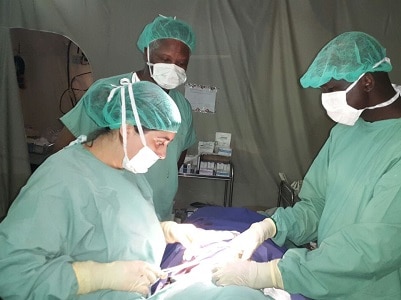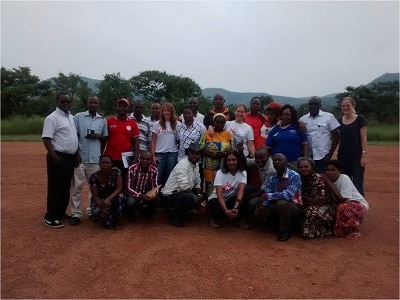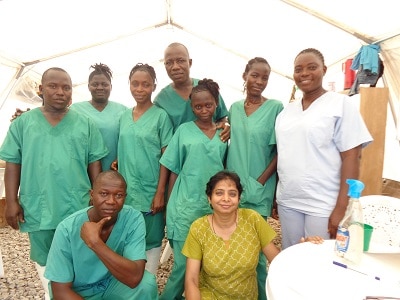On International Women’s Day, three frontline health workers talk about their unconventional careers and why they do what they do

Bhavna Chawla, surgeon
Worked in South Sudan, Papua New Guinea, Yemen
Humanitarianism is just another word for doing something without expectations. Being an ethical clinician in any part of the world is itself humanitarian in many ways as you are always inclined to put patients’ interests before your own. So I was already on my way there…it was just a question of when and how. It can take some time to get those answers. Along with the answers comes the courage to step out of the comfort zone or restrictions we have in our minds. For me, the moment was when I realised I had no reasons not to if I truly want to.
My friends were shocked when I decided to leave my previous job. Many could not fathom the exchange of job security for a life unknown. My family was anxious when they got to know the scope of MSF and the regions I might go to. Five assignments later, they still feel the same. But surprisingly everyone who knows me well accepted it as though it were expected I would do this someday.
In most cultures my being a woman surgeon comes as a surprise to local staff. In one of the assignments, I was briefed that male staff may have trouble adjusting to a woman in authority and I might find that challenging. Well, it turned out to be true but all it took was patience, persistence and being firm and polite. In the end, these just win you respect. And then, the same challenge becomes an advantage.
Read: Bhavna recounts her experience of delivering emergency surgical care in South Sudan
Simi Basheer, logistician

her team in Democratic Republic of Congo. Photo: MSF
Worked in Democratic Republic of Congo, Central African Republic
I got exposed to humanitarian work in Africa when I did a UN Mission with the Indian Army in Democratic Republic of Congo (DRC) in 2009-2010 as a peacekeeper. This gave me a chance to see the reality on field and different NGOs working under tough conditions for the provision of basic amenities to people. It was impressive and also suited my interests in travelling and exploring the world.
I did have some interactions with MSF too and was impressed with the way the small teams delivered results on the ground with less infrastructure and also had a way of connecting with the locals. Hence it was at the back of my mind that someday, when I finish my stint with the army, I would opt for this field.
My first assignment with MSF was as a logistician in DRC in 2013. My major responsibilities were to manage the supply chain in the project and also the administrative parts of staff management. It was challenging in the beginning as the organisation and setup were new to me but slowly we got into the MSF way of working and getting things done. My second assignment was as a flight coordinator in Central African Republic where we did undergo some strenuous security situations and had to get a lot of things done in an emergency context. It was the first time MSF sent out a woman flight coordinator and people took time to get used to it. Slight tremors were always there as people gradually accepted my presence but, on a lighter note, you always have some people keen to help out women, which I thoroughly capitalised on.
Read: Simi’s blog about her time in the Democratic Republic of Congo

Kalyani Gomathinayagam, medical doctor
Worked in Chad, Liberia, Yemen, Iraq
I have worked in different capacities in the medical field. Humanitarian work seemed more challenging – every assignment brings different circumstances which constantly push you to do your best. You are providing medical care where it is desperately needed, which is more fulfilling than being one out of 50 doctors in an urban facility.
In the field, it doesn’t really matter whether you are a man or a woman. Depending on the context, it might be difficult for a man or a woman to perform a particular role. For instance, in some countries a male gynaecologist may not be accepted. But by and large, the challenges of delivering assistance are the same.
My family knows MSF is a humanitarian organisation and works in war contexts. But every time I leave for an assignment I don’t tell them exactly where I am going. I tell them which country but not in great detail because that makes them worry a lot. My friends sometimes think that I am a bit crazy to do all this, but once you have been in situations where you are desperately needed it’s not very easy to turn away from it.
Read: Kalyani’s recollections of working in Liberia during the Ebola outbreak











